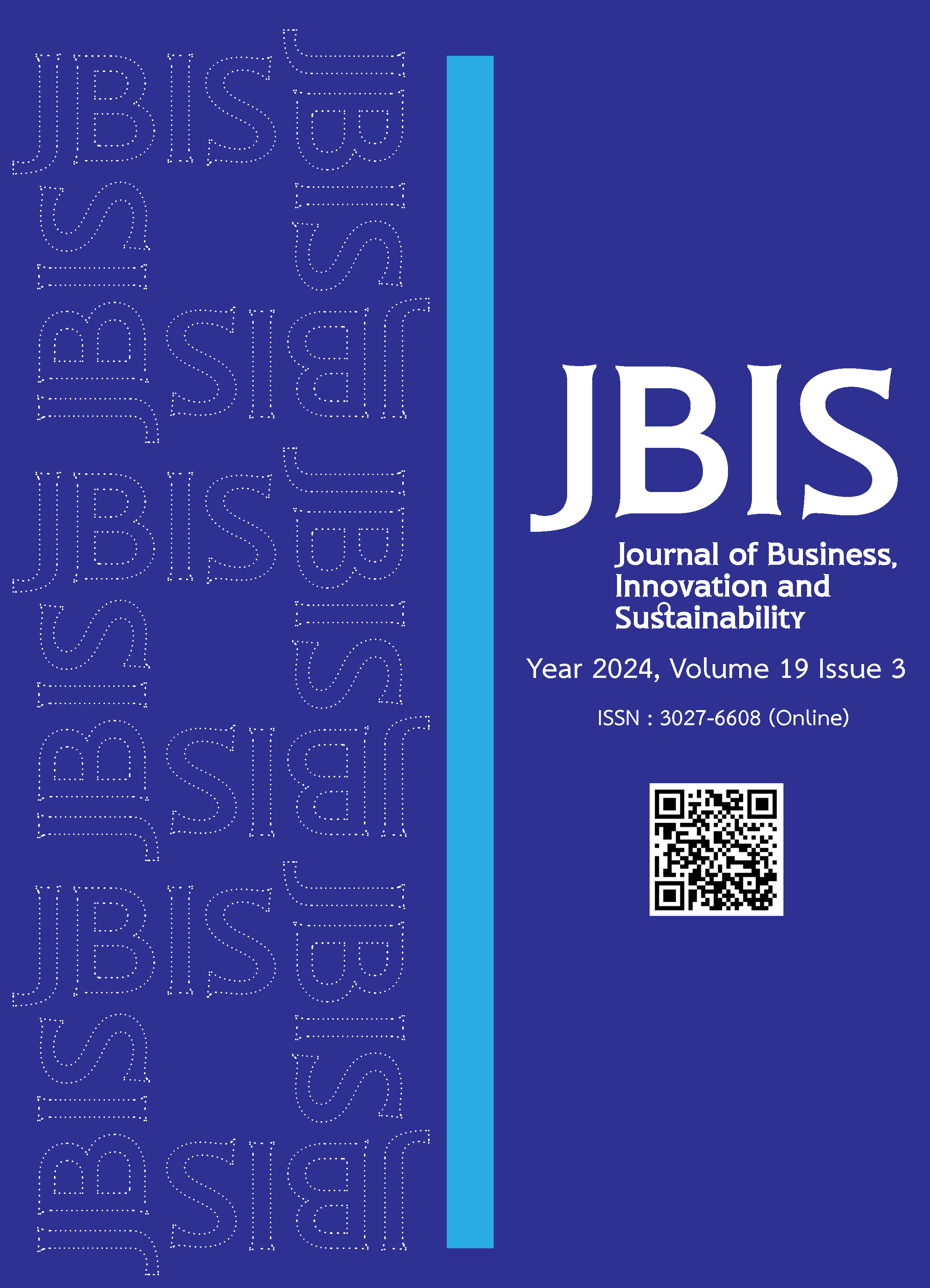Scale Development of Digital Health Literacy for the Elderly
Main Article Content
บทคัดย่อ
Thailand is now transitioning into an aging society while embracing the digital era. Within this context, the utilization of online platforms emerges as a pivotal determinant shaping the digital health literacy of the elderly populace. However, challenges arise due to potential constraints in the elderly's access to and adeptness with digital technology, thereby impacting the efficacy of healthcare delivery. Recognizing this, researchers underscore the significance of enhancing media literacy among the elderly demographic. This study investigates the factors influencing the elderly's comprehension of online health media while devising a comprehensive digital health literacy measurement scale to facilitate targeted interventions. The research draws upon a sample of 281 individuals. The research employs both Exploratory Factor Analysis (EFA) and Confirmatory Factor Analysis (CFA) methodologies. Through rigorous psychometric examination, the analysis reveals the presence of 17 discernible questions, delineating four distinct factors — Functional, Communicative, Critical, and Translational mirroring — existing scholarship. These findings corroborate prior literature and furnish a foundation for further advancement and individual empowerment within this domain.
Article Details

อนุญาตภายใต้เงื่อนไข Creative Commons Attribution-NonCommercial-NoDerivatives 4.0 International License.
เอกสารอ้างอิง
Chotchatchawalkul, P. (2013). Motivations affecting Facebook usage among middle-aged and elderly groups. Master thesis, M.Ed., Thammasat University, Bangkok.
Department of Older Persons. (2022). Statistics on the elderly in Thailand: 77 provinces. Retrieved October 18, 2023, from https://www.dop.go.th/th/know/side/1/1/1766
Hair, J. F., Ringle, C. M. and Sarstedt, M. (2011). PLS-SEM: Indeed a silver bullet. Journal of Marketing Theory and Practice, 19(2), 139–152.
Intarakamhaeng, A. (2017). Creating and developing of Thailand health literacy scales. Retrieved February 16, 2024, from http://bsris.swu.ac.th/upload/268335.pdf
Jaemtim, N. and Yuenyong, S. (2019). Online media usage and online health information literacy of elderly individuals in Suphanburi province. Journal of Health and Nursing Education, 25(2), 168–180.
Morris, N. S., MacLean, C. D., Chew, L. D. and Littenberg, B. (2006). The single item literacy screener: Evaluation of a brief instrument to identify limited reading ability. BMC Family Practice, 7(1), 21.
Norman, C. and Skinner, H. (2006). eHEALS: The eHealth literacy scale. Journal of Medical Internet Research, 8(4), e27.
Paige, S. R., Stellefson, M., Krieger, J. L., Miller, M. D., Cheong, J. and Anderson-Lewis, C. (2019). Transactional eHealth literacy: Developing and testing a multi-dimensional instrument. Retrieved February 19, 2024, from https://www.ncbi.nlm.nih.gov/pmc/articles/PMC7366705/pdf/nihms-1540086.pdf.
Quan-Haase, A., Schreurs, K. and Martin, K. (2014). Interviews with lifelong readers: Preliminary findings from the EDITS (Effects of Digital Information Technology on Seniors) project. Retrieved January 24, 2024, from https://ir.lib.uwo.ca/fimspres/31
Sabbahi, D. A., Lawrence, H. P., Limeback, H. and Rootman, I. (2009). Development and evaluation of an oral health literacy instrument for adults. Community Dentistry and Oral Epidemiology, 37(5), 451–462.
Sukhaphiriyakasem, N. and Chaisuwann, B. (2018). Media literacy and response to infographics among the generation Y group. Retrieved January 24, 2024, from https://libdcms.nida.ac.th/thesis6/2561/b204854.pdf
Sutthipum, F. (2018). Identity of Thai elderly in Facebook social network. Retrieved September 24, 2023, from http://dspace.bu.ac.th/bitstream/123456789/3680/3/fern_sutt.pdf
Tabachnick, B. G. and Fidell, L. S. (2007). Using multivariate statistics (5th ed.). New York: Allyn and Bacon.
Tulanon, S. (2018). Accepting technology affects decision to buy online products of elderly. Retrieved March 12, 2024, from https://nuir.lib.nu.ac.th/dspace/bitstream/123456789/1538/3/61071726.pdf.
Virakulthewan, S. (2018). Media literacy: Power in the hands of digital citizens. Retrieved October 19, 2023, from http://cclickthailand.com/wp-content/uploads/2020/04/17.pdf.
Wang, C., Wu, X., and Qi, H. (2021). A comprehensive analysis of E-health literacy research focuses and trends. Retrieved November 11, 2023, from https://doi.org/10.3390/healthcare10010066.
Wanichbancha, K. (2009). Statistics for research (6th ed.). Bangkok: Chulalongkorn University Press.
World Health Organization. (2024). Health literacy. Retrieved February 16, 2024, from https://www.who.int/teams/healthpromotion/enhanced-wellbeing/ninth-global-conference/health-literacy
Yaree, U. and See kiew, M. (2019). The social network and elderly health care in Thailand 4.0 model. Lampang Rajabhat University Journal, 8(1), 222-238.


